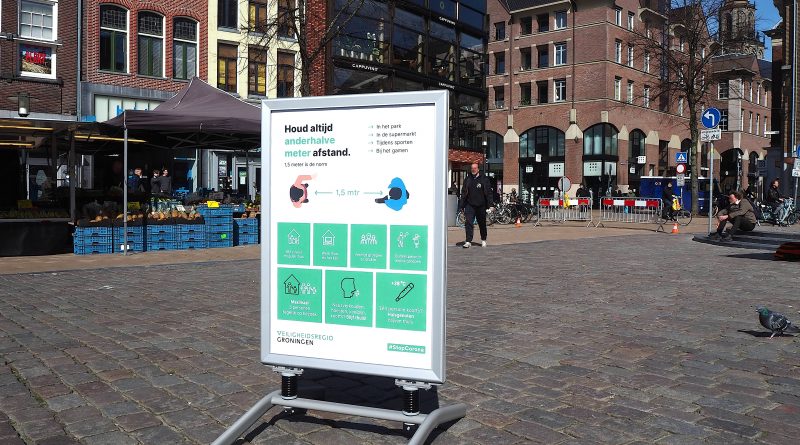Potential Costs of the Coronavirus Quarantine
It’s a bright spring. But we are not in a position to enjoy it. It’s settled now: as of the announcement on the 23rd of March, all meetings of more than three people are banned until June 1st. Not a complete lockdown, but an enforced, ‘intelligent’ lockdown. This is not only a few weeks, but over two months. While necessary to combat the threat of the coronavirus to public health, what larger impact will these unprecedented measures have on us, and on society?
As you go on a solo walk to the store or around the block, you can almost forget about it, with warm sunbeams on your face. But inevitably you remember: there is a pandemic, and we are supposed to isolate ourselves. What is this going to do to us? What can we do?
One of the best things you can do, besides following quarantine guidelines, is to keep your immune system strong and healthy. So that if you do get sick, you can quickly recover and not be contagious. This involves a stable sleep schedule, a good diet, exercise, sun exposure… and in different circumstances, it would also involve spending quality time socializing with friends. Our mental and physical health have a direct impact on each other. It’s therefore both mentally and physically damaging to us to be alone for too long, and even the most introverted among us understand this.
When you are stressed, (for example, because you are forced to be alone, or because you lose your financial security, or you lose structure in your life and have an uncertain future) your immune function is weakened and inflammation is increased. People who are depressed are also at higher risk for a host of other diseases and complications. In contrast, physical touch, which is now functionally banned, improves immune function. What are we to do with a population who are all becoming more immunocompromised by the second due to their current situation?
Fear and paranoia are their own form of virus. They spread freely now like pollen in the air. They will remain in many minds after this is over, and will negatively affect the way people interact and relate with each other. While the grave threat against us should be taken seriously, and people most at risk must be protected, there’s no use in further worrying about what you are unable to control. As explained above, undue panic may actually worsen your chances of remaining healthy and not contracting the virus. All you can do is try and prevent potential instances of transmission.
Yet, there’s something taboo to point out here. We don’t necessarily know that the ‘intelligent lockdown’ will be able to, at this point, contain the pandemic. We don’t know if it’s already too late. And we don’t know if, as soon as we end this lockdown, the virus will simply return. Are we supposed to live our lives in fear and isolation every flu season?
Here’s the best-case scenario: isolation works and the coronavirus disappears, but we are left dealing with the global economic and social consequences for months to come, with a stark increase in cumulative cases of anxiety, addictive drug use, poverty, paranoia and depression.
And the worst-case scenario: isolation does not work to stop the coronavirus, so the spread continues, and on top of that we deal with global economic and social consequences for months to come, with a stark increase in cumulative cases of anxiety, addictive drug use, poverty, paranoia and depression.
This social isolation has a direct, negative, long-term cost on the general health and quality of human life either way. Let’s recognize that. I sincerely hope this was weighed and understood when governments made the decision to introduce stricter authoritarian measures. There is no winning here. During the 2008 economic crisis, suicide rates increased. And there was no virus or quarantine involved there. Some people are calculating that this could be much worse.
Humans are social primates. Social behavior is hardwired into us. Asking everyone to isolate and stay away from each other is akin to asking songbirds to stop singing, or spiders to stop building webs. While current guidelines should be followed, this basic fact of human nature should be remembered before you jump to judge people you see on the street in the coming months.
Yes, digital interaction is one substitute. It is now absolutely essential. But I am not convinced it is enough. We should have sympathy for people who need to take a walk outside, or who need to visit with a friend (of course, only at an appropriate 1.5m distance). It’s the only way some of us will be able to maintain any pretense of sanity.
We need to be compassionate and understanding of each other in these times. Check in on people you know. Don’t be afraid to ask for help. I hope we will all be able to heal the damage this quarantine will have caused after it is over- emotionally, mentally, socially, physically, economically, culturally. Society is not going to easily go back to ‘normal’. This situation will undoubtedly leave its scar.

